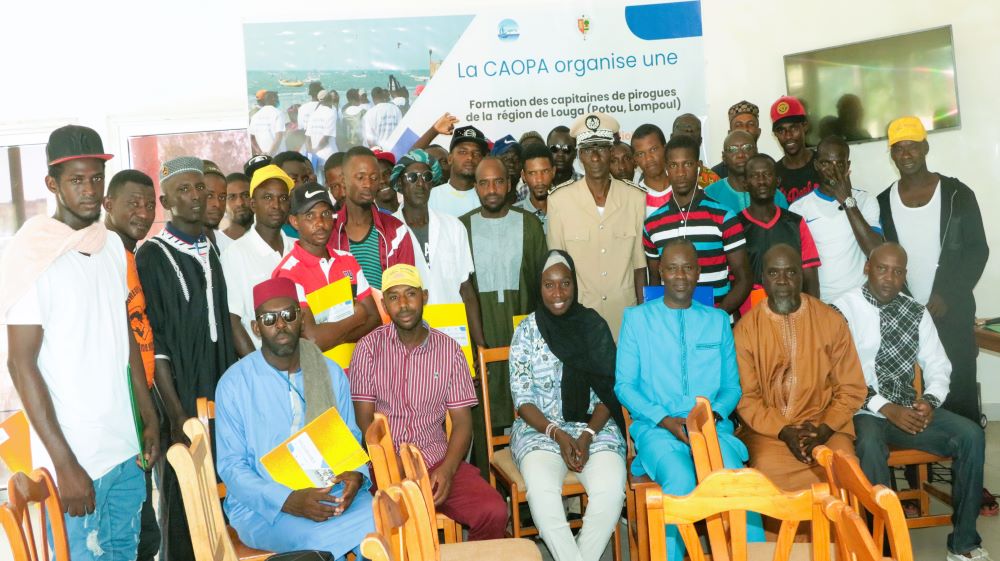Artisanal fisheries, a vital pillar of the Senegalese economy, stands at a critical juncture. To address the challenges of maritime safety and sustainable management of fishery resources, the African Confederation of Artisanal Fishing Organizations (CAOPA) organized a training workshop from July 31 to August 1, 2023. The canoe captains from Louga (Potou and Lompoul) seized this opportunity to enhance their skills and commitment to responsible and sustainable fishing practices.
Objective: Awareness and Engagement
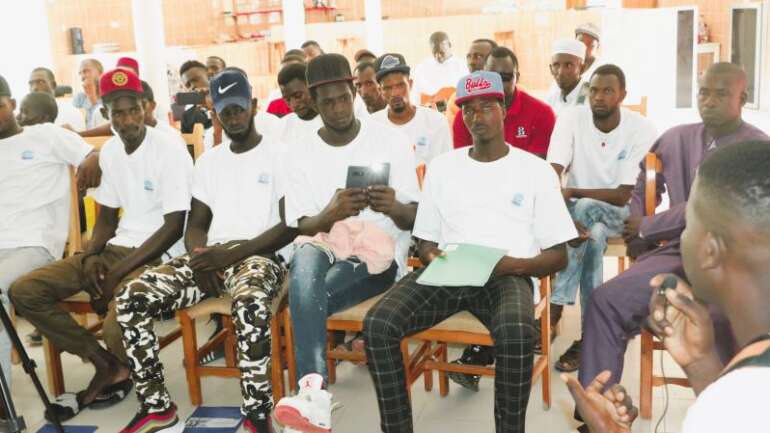
The workshop’s mission was to raise awareness among captains about maritime safety issues, fishery regulations, and the crucial importance of preserving the marine ecosystem. Specific objectives guided participants throughout these two days:
– Raising awareness about maritime safety measures 🌊⚓
– Understanding fishery regulations 📜🐠
– Emphasizing gear selectivity for responsible fishing 🎣🐟
– Strengthening awareness of sustainable resource exploitation 🌿🐋
Opening of the Workshop and Testimonials
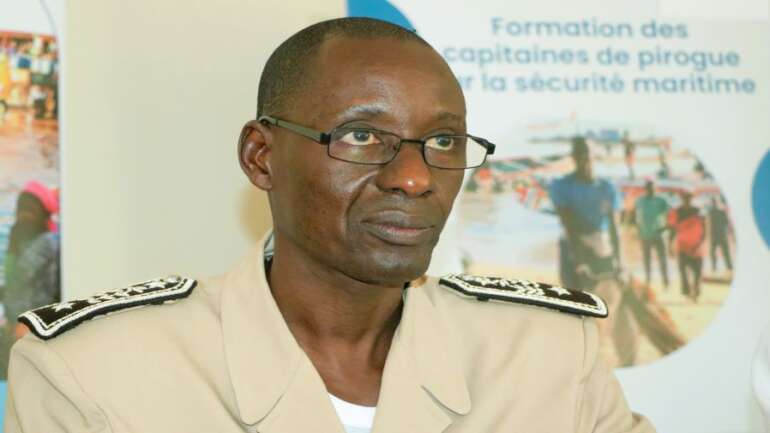
Elhadji Kébé, representative of the sub-prefect of Sakal, Louga, hailed the CAOPA’s initiative in organizing this workshop, a first in his jurisdiction. Kébé believes that this training “will enhance the capacities of young canoe captains from Lompoul and Potou in terms of responsible fishery resource management, maritime safety, and greater involvement in complying with laws and regulations.”
The CAOPA president emphasized the motives behind organizing such training, stating, “We are currently witnessing numerous accidents, deaths, and disappearances at sea. I’m not saying that the captains are solely responsible, but I believe that proper training and information on managing their crews can mitigate what we observe.”
He called on the Senegalese government to identify captains, provide them with professional certificates, and require them to undergo necessary training before becoming canoe captains. Gaoussou Gueye also proposed the establishment of a dedicated training center for artisanal fishing, emphasizing that safety at sea should encompass aspects from conception to launch.
Challenges and Future Recommendations
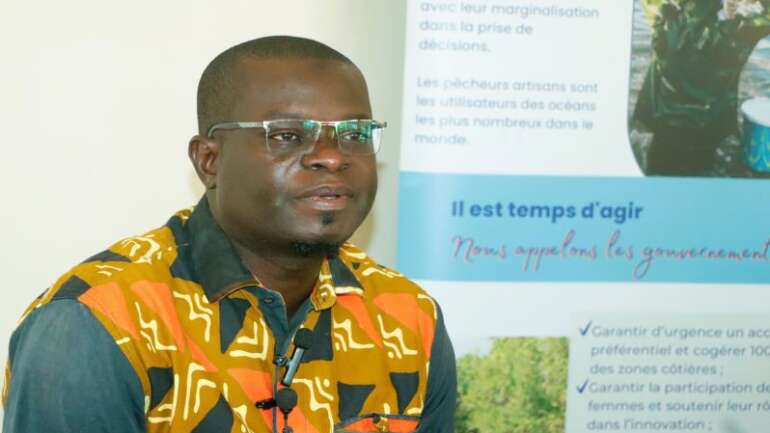
According to Abdoulaye Diédhiou, the regional inspector of fisheries and surveillance in Louga, this training “will contribute to reducing accidents at sea and improving working conditions for fishermen.” He emphasized that the training is “special,” as canoe captains are primarily responsible for crew safety, navigation, and effective fishery management.
Diédhiou indicated that maritime fishing has become a complex sector, with challenges including a weak local fleet, non-diversified fishing techniques, lack of functional conservation infrastructure, frequent conflicts among fishermen, net destruction by ships, and difficulties accessing the Potou fishing dock.
Closing Ceremony and Testimonials
The closing ceremony was marked by poignant testimonials from participants. Ousmane Sow, the coordinator of the Local Artisanal Fishing Council (CLPA) in Potou, shared, “This training opened our eyes to new practices that can truly make a difference for us fishermen. We learned how to better manage our resources and ensure safety at sea.”
Omar Ba, a fisherman, expressed, “Receiving a professional certificate is a significant step forward for us. It will help us gain better recognition and respect in our profession. Thanks to this training, we are now better equipped to face the challenges of the sea and contribute to sustainable fishing.”
Recommendations for a Better Future
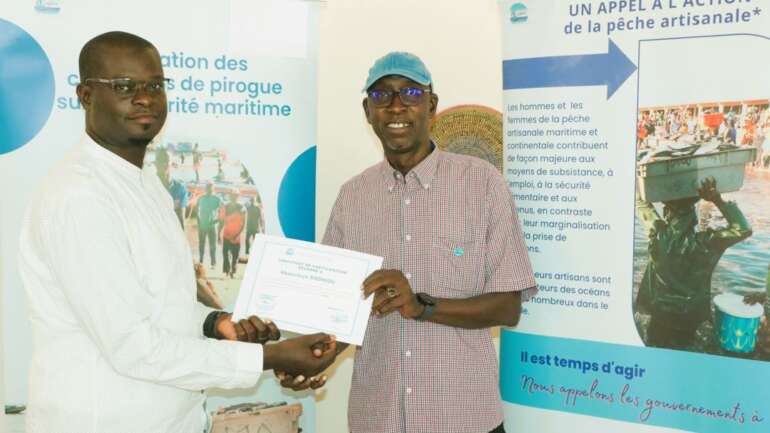 CAOPA highlighted crucial recommendations for the future of fishing in Senegal. President Gaoussou Gueye emphasized the necessity of continuous training for captains and providing them with professional certificates. He stressed that maritime safety should be a collaborative effort from conception to launch.
CAOPA highlighted crucial recommendations for the future of fishing in Senegal. President Gaoussou Gueye emphasized the necessity of continuous training for captains and providing them with professional certificates. He stressed that maritime safety should be a collaborative effort from conception to launch.
In conclusion, this workshop marks a significant turning point in the pursuit of safer, sustainable, and environmentally-respectful artisanal fisheries. Participants emerge with new skills, an expanded vision, and a strengthened mission to preserve the treasures of the sea.
By Aliou DIALLO


